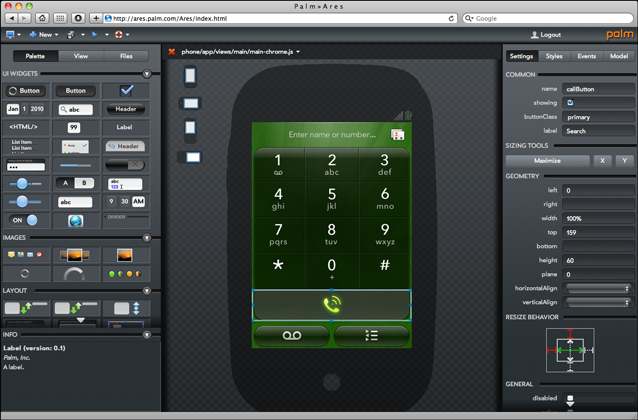| WebOS on every HP PC - the developer's take |
| Written by Harry Fairhead | |||
| Friday, 18 March 2011 | |||
|
HP has announced its intention to put WebOS on desktop machines. Why does HP want to do this, what's in it for the developer and can it work?
It is clear that the Windows OS is under attack from Linux-derived mobile operating systems, but now HP seem to want to take the fight to the desktop. Boss of HP Leo Apotheker has stated that by 2012 every PC that HP ships will run both Windows and WebOS.
The apparent reason for this crazy idea is supposed to be that by putting WebOS on lots of PCs developers will feel that there is a market for WebOS apps and create lots of new ones. At the moment the WebOS app market is small to say the least and yes it could do with a boost, but this scheme is unlikely to work. Why would a user consider running WebOS when they have Windows and a full complement of apps? Why would a developer consider creating an app to run under WebOS on a PC when they could create an HTML5 app that runs on everything or a native app that runs better on the PC? Even if native mobile apps appeal to you do we really need another mobile OS to support. It just doesn't make sense - or does it? First off there are lots of technical problems. WebOS as it stands targets mobile devices and to run reasonably on a PC it would have to be heavily augmented, introducing fragmentation of the platform. Android has already been critisied for fragmenation before it got to the version 2.0 mobile and version 3 notepad split. Why would WebOS fair any better? There is also the small question of how the user would be expected to switch between the two desktop operating systems - clearly dual booting isn't going to go down well. There are no exact details but as it has been suggested that running Windows and WebOS is to be an "integrated experience", it is reasonable to assume that WebOS will be run in an embedded emulator. The current SDK uses a Virtual Box based emulator so this is not an unreasonable guess and it would minimise the work needed to get the system off the ground. It also suggests a way that the idea might not be so crazy. If HP present WebOS in the form of an emulated WebOS device that the user can play with and synchronise with a real WebOS device then why not develop apps for it. Given the approach of cloud-based synchronisation that WebOS takes, this would allow you to use the data in the mobile device on the desktop and update it from the desktop. This is turn will also allow you to continue to use your WebOS application on the desktop. This makes more sense but it really isn't quite as impressive as claiming that WebOS is on every HP PC along side Windows. However it does avoid the tricky problem of HP's relationship with Microsoft. After all simply running as an emulator under Windows WebOS is just another application. Many a phone manufacturer provides an interface kit complete with a virtual phone device that runs on the desktop - it's just that not many of them make much of a feature of it. If HP's idea takes off then it should be relatively easy for other mobile devices to follow - Desktop Android and iOS would be trivial adaptations of existing development emulators with some user friendly packaging. In fact put like that it's surprising that it hasn't already happened. Finally what is WebOS development like? What is interesting about WebOS development is that it now emphasizes the use of JavaScript and HTML augmented by the Mojo framework. This makes it perhaps the most accessible of the mobile development environements because the skills needed don't go much beyond what is required to build a web page.
The Mojo framework extends the usual programming environment to include UI Widgets and hardware access that make the app look more like a native app. The SDK comes with command-line tools for building native applications. Plugins are also available for Eclipse. If you want a really simple way to create apps then you need to look at the Ares project which allows you to create apps via a web based drag-and-drop designer and code editor.
While you still can develop native apps in C/C++ this seems to be a route that is being downplayed. The C/C++ development kit is called the PDK - for Plugin Development Kit which gives the impression that its for advanced use. The documentation suggests that the only time you need the PDK is of you want to do something like port a game to WebOS. Taking the JavaScript route to creating "native" apps is different and it is an approach that other platforms might want to copy because it significantly lowers the bar to getting started. If an emulated WebOS device is on every desktop that HP sells, then perhaps the whole idea isn't crazy, no it isn't crazy at all... Do you want to comment on this story? E-mail the editor@i-programmer.info
|
|||
| Last Updated ( Friday, 18 March 2011 ) |



